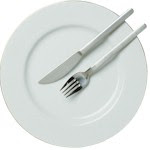http://edmonton.ctv.ca/servlet/an/local/CTVNews/20080707/EDM_autism_080707/20080707?hub=EdmontonHome

A popular family restaurant vowed to give their staff sensitivity training Monday after an employee kicked out a family because their autistic child was making too much noise.
The ordeal began shortly after Sarah Seymour took her family, including her autistic daughter Eowyn, to a Smitty's Restaurant in west Edmonton on Saturday.
Seymour said five-year-old Eowyn began rocking, pulling at her hair and crying loudly when she was told her choice of pizza was not available at the restaurant.
"It was kind of obvious that she was different, she was acting like she was different, kind of like a really angry two-year-old except for this noise she was making," she said.
A staff member at the restaurant then allegedly asked the family to remove her. The mother of four then tried to explain that her daughter was autistic and would be calm in a moment.
Seymour said it was what the store manager allegedly said next that really made her emotional.
"He said, 'If she has autism and she acts like this, you should not take her out in public.' That's when I sort of lost my mind," she said.
Seymour said she grew so angry she decided to leave the restaurant.
"It was really upsetting," she said. "It's sort of like a slap in the face when somebody says that about your child."
Autism Society of Edmonton president Karen Phillips said there is still some ignorance in society about those with special needs.
"They don't want to bother other people at the same time, they want to participate in life like the rest of us," she said.
Patience, understanding and compassion are just some of the basic tools needed to interact with people living with autism, Phillips said.
An apology was giving to the Seymour family Monday on behalf of Smitty's Canada.
Smitty's is Canada's largest family restaurant chain with more than 115 stores open across the country.
Rob Sroka, vice-president of Smitty's Canada, said an emergency staff meeting will be called Tuesday for all Edmonton restaurants.
Staff will be briefed on what autism is and also provided with some sensitivity training.
"This was a misunderstanding I believe more of a language issue than anything else," Sroka said. "We want to focus on kids and families, not turn them away."
Sroka said he spoke with the staff member and the store manager claims to have never said the offending statement about taking the child out in public.
He also said the manager is a foreign worker and is new to the country, making the misunderstanding more about a difference in language rather than insensitivity.
The Grande Prairie family said they are happy to have gotten an apology, but they still believe more needs to be done to educate people about those living with autism.
"She has to live her life too, it's a balancing act it really is," Seymour said. "You just get tired of the discrimination, you do. I think our world is ready for this. Racism, sexism is no longer acceptable I think special needs people need to be accepted too."
Smitty's Canada also said it would like to work with the Autism Canada Foundation to spearhead a fundraiser for the cause.


